If you love the taste of Japan, you will be delighted to know that you can enjoy negi oil here in America. The flavor is so unique that you will be surprised by its popularity among Americans. The oil, which comes from the root of the Japanese fern, is a staple ingredient in Japanese cuisine. If you’ve never tasted negi onions before, read on for more information. This product is best if you can find it in a Japanese supermarket.
Japanese Negi Oil Recipes
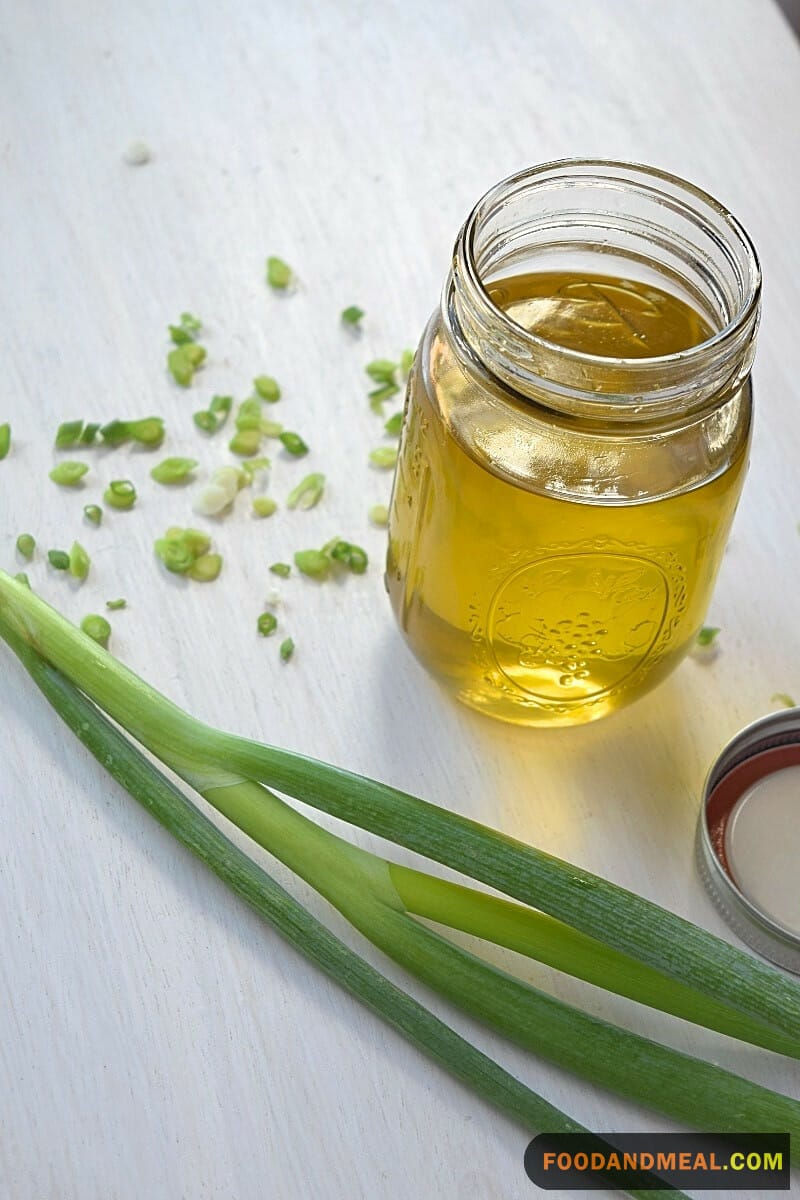

Negi Oil
Ingredients
- 1½ cups lard pork fat or vegetable oil
- ¼ cup scallions roughly chopped, green parts only
Instructions
- In a medium saucepan, heat the lard over medium heat to melt it.
- Add the scallions and cook for a few minutes, stirring, until they turn light brown.
- Take the pan off the heat and strain the negi oil into a container.
- Discard the scallion pieces.
- Store in an airtight container in the refrigerator for up to 6 months.
Video
Notes
roughly chopped garlic for the scallions.
Nutrition
© Food And Meal
This website provides approximate nutrition information for convenience and as a courtesy only. Nutrition data is gathered primarily from the Spoonacular Database, whenever available, or otherwise other online calculators.
Alternative Method: Negi Oil in a Blender
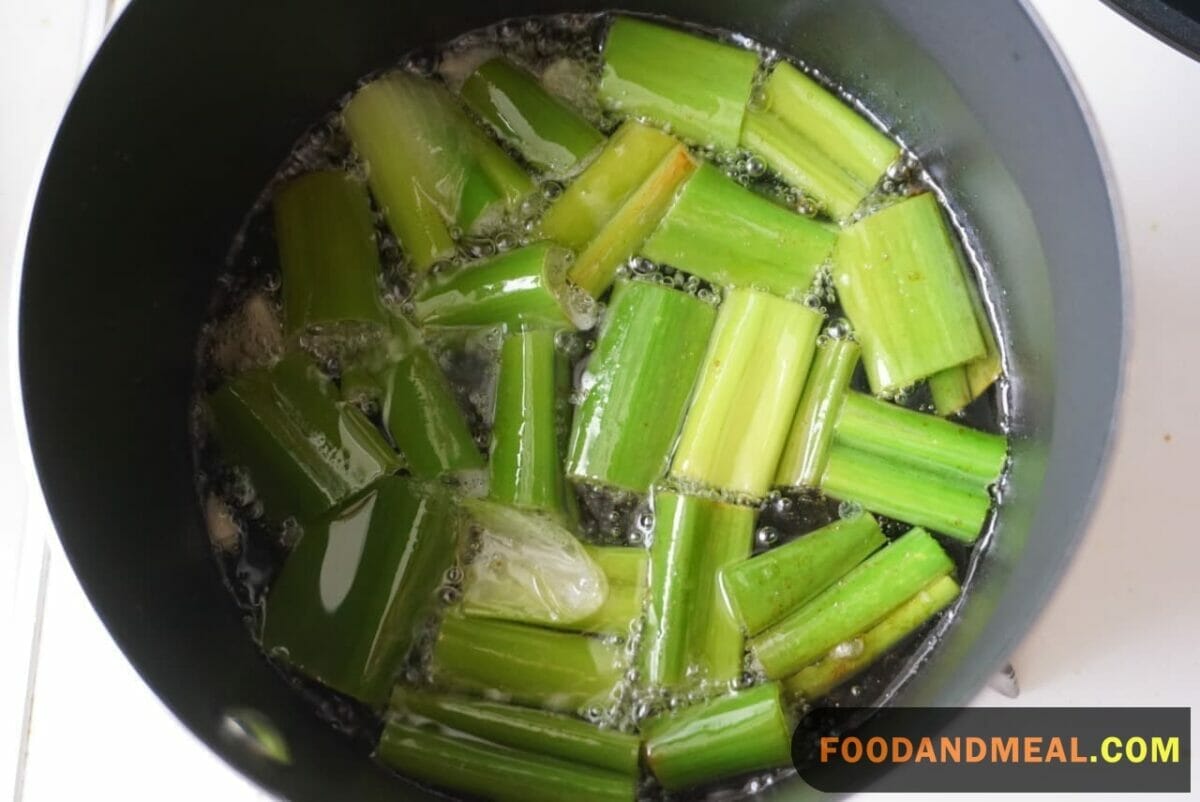
To prepare Negi Oil, start by washing the green onions thoroughly and drying them completely. Trim off the roots and any discolored parts. Next, cut the green onions into smaller pieces to facilitate blending. In a blender, combine the chopped green onions with garlic and ginger. Begin blending at a low speed, gradually increasing to high until you achieve a smooth, vibrant green mixture. While the blender is running, slowly add the vegetable oil to emulsify it with the green onion mixture. Blend until well-incorporated. Taste the Negi Oil and adjust the salt to your preference, blending briefly to ensure even distribution. Strain the mixture through a fine mesh strainer or cheesecloth into a clean container to remove any solids. Your Negi Oil is now ready for use. Store it in an airtight container in the refrigerator where it will remain fresh for several weeks.
Tips for making Negi Oil
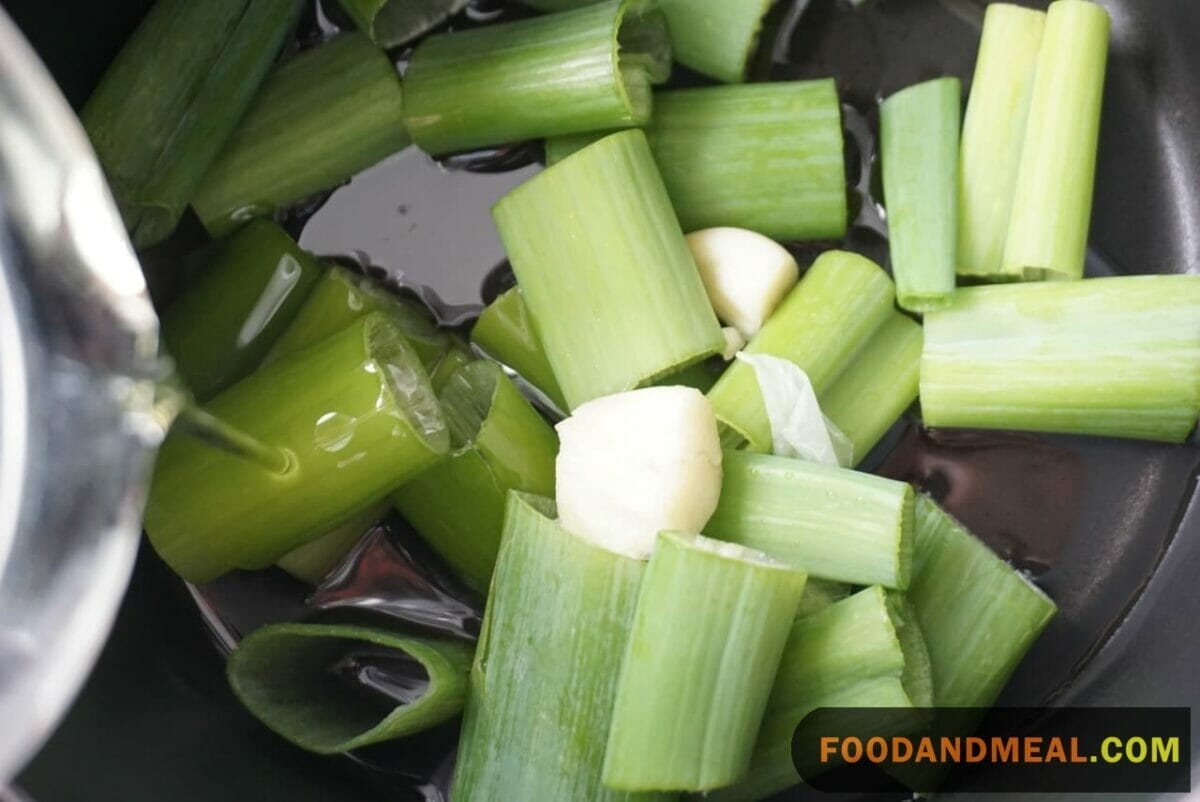
Serving Suggestions
Negi oil, prized for its onion-like aroma and umami flavor, is a versatile addition to Japanese cuisine. It can enhance a wide range of dishes, including natto, gyoza, karaage, sashimi, yakisoba, butajiru, oyakodon, mentsuyu, katsudon, miso soup, egg salad, taco pizza, fish tacos, miso ramen, pork chasu, tuna satay, dragon roll, niku soboro, ponzu sauce, katsu curry, wonton soup, khanom, and Buddha bowls. Whether brushed on, mixed in, or drizzled over, negi oil adds depth and flavor to these culinary delights, offering a delightful twist to traditional recipes.
Cooking Tips
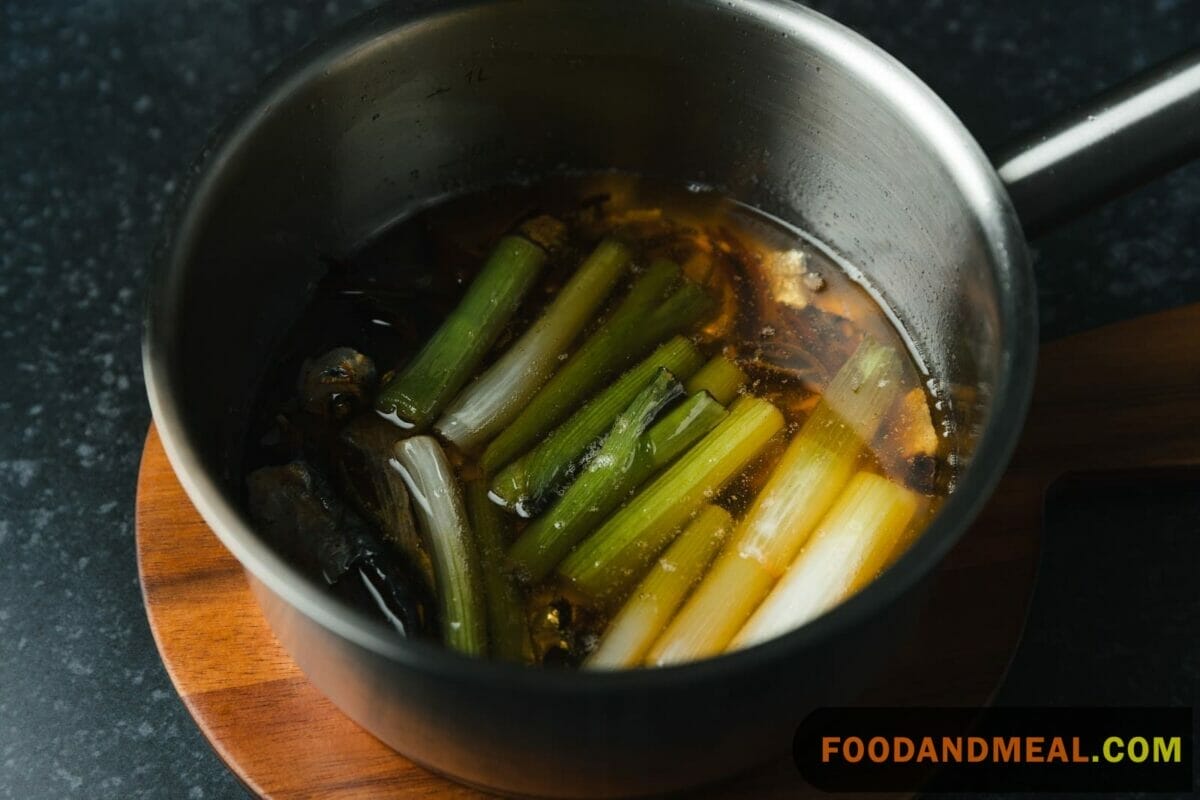
To begin crafting this versatile oil, it’s recommended to select the freshest green onions available, looking for bright colors and crispness, as this will significantly influence the quality and taste of your oil. The connection between the quality of ingredients and the finished product is profound, underpinning the very essence of culinary excellence.
After procuring your green onions, the process of gently heating them in a neutral oil, such as canola or vegetable oil, becomes a meditative and sensory experience. The key to successfully infusing the oil is to apply a low and patient heat, allowing the flavors to meld and intensify without burning. The aroma that fills the kitchen is both comforting and invigorating.
There’s something truly enriching about creating negi oil. As the green onions soften and their sharpness gives way to a mellow sweetness, a transformation occurs that always feels a bit like kitchen alchemy. It’s delightful to observe the oil gradually take on a light green hue, visual proof of the flavors being extracted.
Negi oil’s application in cooking is just as enjoyable as its creation. Drizzling it over ramen adds depth and a punch of umami, transforming a simple bowl of noodles into an elevated dining experience. Anointing steamed vegetables or rice with negi oil instantly bestows upon them a festive flair and sophistication.
In the spirit of exploration, one might also blend negi oil into salad dressings, lending a unique twist to otherwise familiar vinaigrettes. The subtle onion flavor brings brightness to greens and adds complexity to the overall profile of a salad dressing.
Emotionally, there is a sense of serenity and accomplishment in making negi oil from scratch. It embodies the pleasures of home cooking, where straightforward ingredients are transformed through care and attention to detail into something more than the sum of their parts.
From my perspective, negi oil is not only about adding dimension to a dish but is also a celebration of simple joys in the kitchen. Its understated elegance is a reminder that even the most humble ingredients can be crafted into something extraordinary and soul-satisfying.
FAQs about Negi Oil
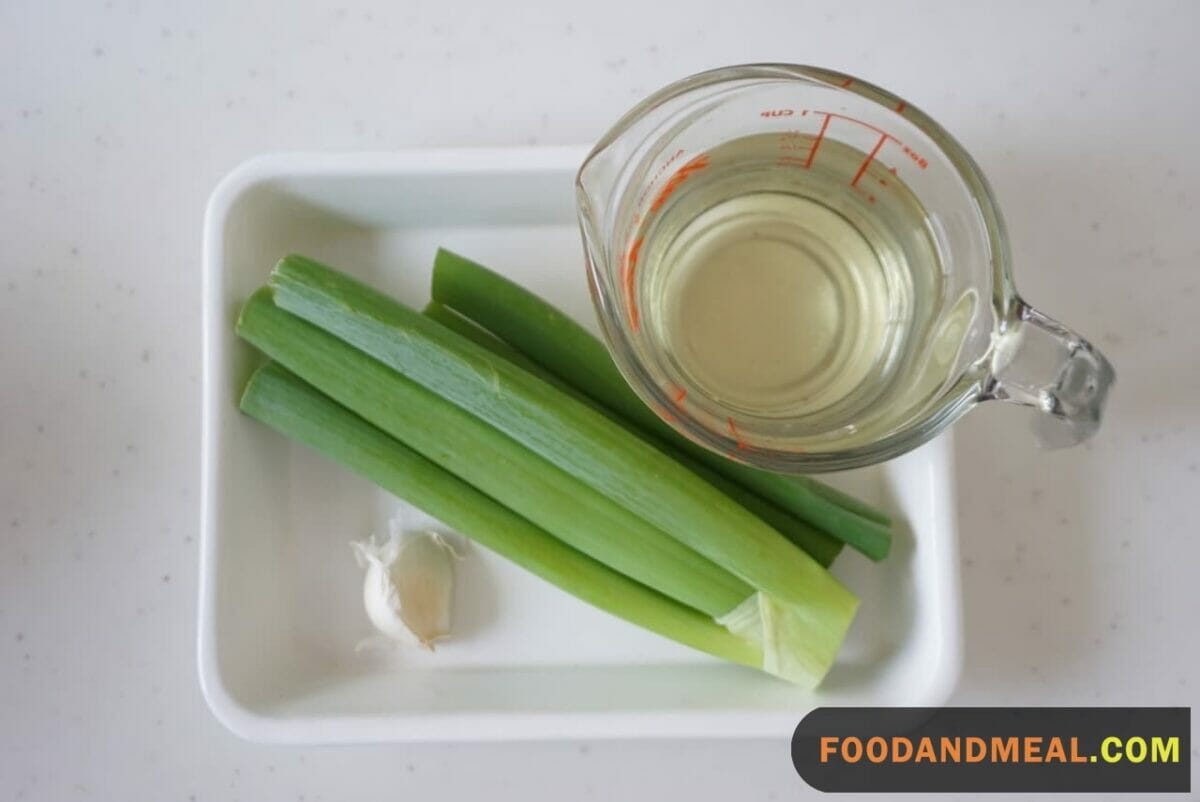
- How long can I store Negi Oil? Negi Oil can be stored in the refrigerator for several weeks. Always check for signs of spoilage, such as off odors or mold, before using.
- Can I use Negi Oil in stir-fries? Absolutely! Negi Oil adds a burst of flavor to stir-fried dishes. Drizzle it in at the end of cooking to keep its fresh taste.
- Is Negi Oil suitable for vegan or vegetarian dishes? Yes, Negi Oil is a fantastic choice for vegan and vegetarian dishes. It’s a plant-based condiment that enhances the flavor of various cuisines.
- Can I use Negi Oil in salads? Certainly! Negi Oil can be used as a dressing or drizzle over salads, adding a unique, savory twist to your greens.
- Can I reduce the spiciness of Negi Oil? If you find Negi Oil too spicy, you can balance it by adding a touch of honey or a neutral oil to mellow out the flavor. Adjust to your preference.
Conclusion
As we reach the conclusion of our exploration into the vibrant world of Negi oil, it’s clear that this is one ingredient that should hold a proud place in any culinary aficionado’s kitchen. Nurture your connection to Japanese cuisine and amplify your dishes’ flavors by introducing this green onion-infused treasure from the heart of the Land of the Rising Sun. Whether it’s infusing your natto with an extra layer of complexity or adding a sublime touch to your taco pizza, Negi oil is your silent hero, ready to elevate the mundane to the extraordinary.
The journey through making, understanding, and using Negi oil has been nothing short of a sensory delight. With its simplicity and versatility, Negi oil is an ode to the philosophy that food should not only satisfy hunger but also bring joy and nourishment to the soul. By integrating Negi oil into your cooking repertoire, you invite a piece of Japanese tradition into your meals, encouraging a fusion of flavors that can bridge cultures and palates.
At Food And Meal, we believe that every dish has a story, and Negi oil adds an exciting chapter to that narrative. As you experiment with its subtle yet profound impact on various dishes, remember that every drop carries with it the potential to turn a meal into a memorable experience.
Hello! I’m Black Pie, your culinary guide at Food And Meal, Hana Hotel Travel Company Limited. I'm passionate about unveiling the rich and diverse flavors of African cuisine to the world. Each recipe we explore is a celebration of culture, tradition, and exquisite taste. Join me on this delightful culinary journey, where we'll discover and share the hidden gems of African cooking together!




